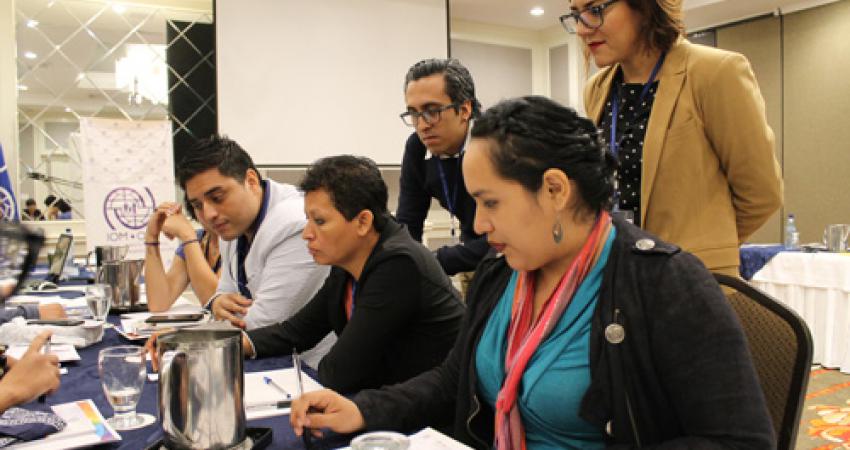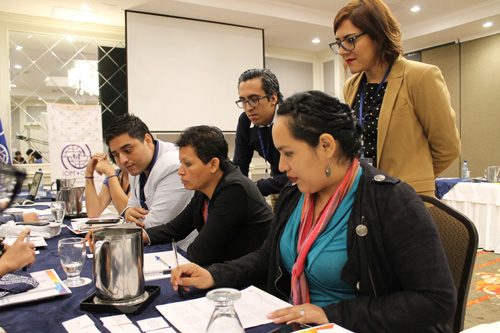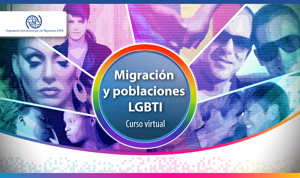OIM launches a new online course on the rights and risk faced by LGBTI migrants

Costa Rica - The new course Migration and LGBTI People on the Learning Platform of the International Organization for Migrations will allow officers of governmental institutions and NGOs linked to the topics of migration and human rights that work with lesbian, gay, bisexual, trans and intersexual (LGBTI) migrants, to acquire the necessary knowledge related to the rights and risk faced by this population during their migratory journeys.

LGBTI people in the region are exposed to discriminatory and exclusion conditions, as well as structural factors related to the non-recognition of their rights in the legislations of various countries, which gives place to their high vulnerability.
It is in this context that LGBTI people in the region migrate in search of safe and less discriminatory environments, better opportunities and where their rights are recognized.
In 2013, the Inter-American Commission For Human Rights documented in their violence registry at least 120 LGBTI people who were murdered in Central America (79 in Mexico, 30 in Honduras, 6 in El Salvador, 3 in Guatemala and 2 in Nicaragua.)
“The Virtual module Migration and LGBTI People is an outstanding resource for people who want to learn about the theoretical and conceptual bases of migration and sexual diversity, increase their knowledge on the context faced by LGBTI migrants in Mesoamerica through and interactive approach, or reinforce the knowledge gained during face-to face workshops”, explained Alexandra Bonnie, Regional Coordinator of the Mesoamerica Program, the project who developed and financed the course.
 The online course includes two self-learning modules and mainly targets personnel of institutions in charge of assisting LGBTI migrant people, such as governmental agencies, NGOs, and human rights activist that work with this part of the population.
The online course includes two self-learning modules and mainly targets personnel of institutions in charge of assisting LGBTI migrant people, such as governmental agencies, NGOs, and human rights activist that work with this part of the population.
“Through this virtual module, participants will be able, among other things, to recognize concepts related to sexual and identity diversity, and learn about the functioning of international mechanisms for the protection of human rights; two of the workshop components that, because of their complexity and in many cases being innovative subjects, are harder to assimilate by the participants”, explained the Technical Specialist of the Mesoamerica Program, Noemy Serrano.
The Migration Learning Platform of IOM, offers other virtual courses on other topics covered by the organization, such as the identification of migrant people in conditions of vulnerability, women in migrations, trafficking in persons, human rights in migration, unaccompanied and/or separated migrant girls, boys and adolescents, asylum seekers and refugees, among others.
This self-learning course was developed in the framework of the Mesoamerica Program, implemented by the International Organization for Migrations, financed by the Office of Population, Refugees and Migration of the Department of State of the United States of America, with the purpose of strengthening the capacities of governments and civil society organizations for the promotion of regular, orderly, and safe migration.
To visit the Migration Learning Platform go to the following address:
http://plataformadeaprendizaje.iom.int/
More information on the Mesoamerica Program can be found in this address: